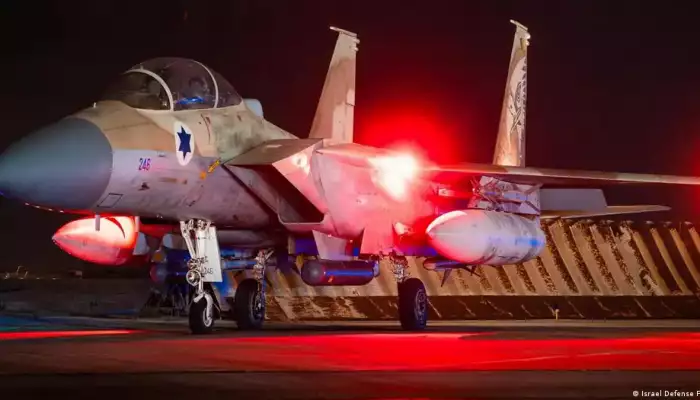
Iran launched more than 300 drones and missiles at Israel on Saturday night in retaliation for a suspected Israeli attack on its embassy in Damascus at the beginning of April. As the missiles and slow-moving drones were heading toward Israel, Israel's allies stepped in to help.
The US and UK air forces were involved in shooting down the aerial threats. France may also have been involved in patrolling the area, although it was unclear if the French shot down any projectiles.
But what got a lot of attention was the fact that the Jordanian air force also stepped in to help. Jordan opened up its airspace to Israeli and US planes, and also apparently shot down drones that violated its own airspace.
According to the Reuters news agency, residents there heard heavy aerial activity and images of remnants of a downed drone in the south of Amman, Jordan's capital, circulated on social media.
"Gulf states, including Saudi Arabia, might have played an indirect role as well, since they host Western air-defense systems, surveillance and refueling aircraft that would have been vital for the effort," noted British publication The Economist.
Online, some commentators, like Haaretz writer Anshel Pfeffer and Mairav Zonszein of the International Crisis Group, were quick to celebrate the Arab involvement. They said it proved Arabs and Israelis could work together and that Israel was not alone in the Middle East.
"Iran's attacks also rallied new international support behind Israel, including from key Arab states critical of the Gaza offensive that nonetheless supported the Israeli military response to the drone attacks," Julien Barnes-Dacey, director of the Middle East and North Africa program at the European Council on Foreign Relations, confirmed in a statement on Sunday.
Jordan, for example, has been highly critical of Israel's military campaign in Gaza, which has continued over the weekend. One in five people in Jordan are of Palestinian descent, including the country's own queen, and over the past few weeks there have been increasingly aggressive protests against Israel.
At the same time, though, Jordan shares a border with Israel, is the guardian of the Al-Aqsa Mosque in Jerusalem, a highly significant place for Muslims, Christians and Jews, and regularly works together with Israeli authorities, albeit often behind the scenes.
Jordan, Saudi Arabia face tricky balancing act
Jordanian authorities, which also consider the US an important ally, must balance all of those competing interests, its political stability and its own self-defense. Jordan was quick to say that in helping Israel, it was actually defending itself.
"Some objects that entered our airspace last night were intercepted because they posed a threat to our people and populated areas," the Jordanian government said in a statement. "Several fragments [of downed targets] fell on the country's territory without causing any significant damage."
Saudi Arabia is another country that has had to balance its own interests, international alliances and realpolitik with appearances around the Gaza conflict.
The wealthy Gulf state was poised to normalize relations with Israel before the October 7 attacks by the Gaza-based militant group, Hamas, that resulted in the deaths of around 1,200 people in Israel. But after Israel launched its military campaign in Gaza, where more than 33,000 people have been killed over the past six months, according to the Hamas-run Health Ministry, those plans were put on hold.
The Saudi government has welcomed calls for a cease-fire in Gaza and has been critical of Israel's conduct there. But insiders regularly concede that privately, the Saudis are still interested in improving relations with Israel.